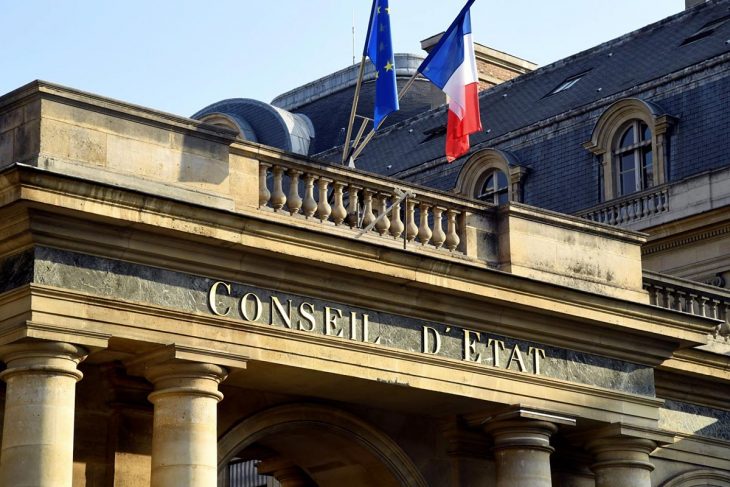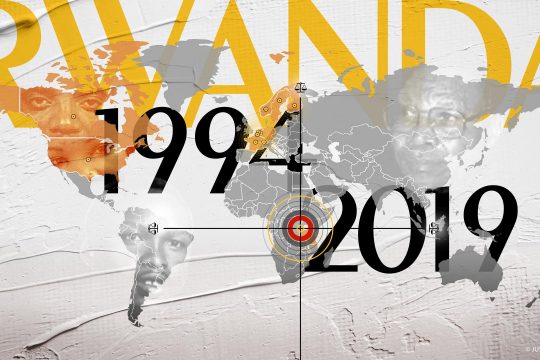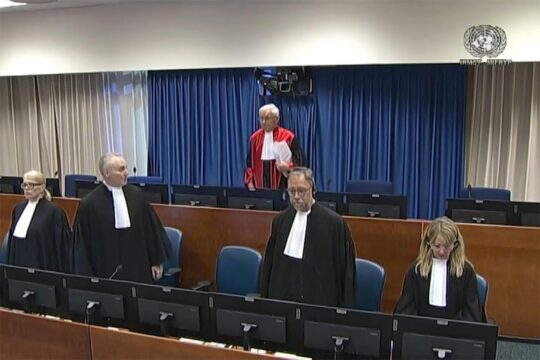Jules Lepoutre is a professor of public law at the University of Corsica in France. He is a specialist in nationality law. His doctoral thesis was entitled "nationality and sovereignty". So not surprisingly his attention was drawn to an April 8, 2021 ruling of the State Council, France’s highest administrative court, confirming rejection of a naturalization application by a Rwandan woman who had been living in France for 27 years, on grounds that her husband had been convicted for his role in the 1994 genocide of Tutsis in Rwanda and that she had not broken up with him.
In their decision, the judges noted that the initial rejection of her naturalization application was "based on the circumstance that her husband, Mr. D., had, in his capacity as Planning Minister of Rwanda, directly and publicly incited genocide in 1994 genocide, for which he was found guilty and sentenced to 30 years in prison by the International Criminal Tribunal for Rwanda on December 18, 2014." They then note "that Mrs. C. was still married to Mr. D. and continued to maintain relations with him", which had led the Interior Ministry to reject her naturalization application. The State Council concluded that there was "no error in law".
Does being married mean sharing ideology?
In a solid analysis of the decision, entitled "Spouse of a genocide convict and naturalization request: dangerous liaisons” published in the administrative law journal AJDA (Editions Dalloz), Professor Lepoutre wonders what conclusions should be drawn. "It is considered that by remaining married to a man convicted of genocide, she would have ‘shared’ or ‘validated’ the acts committed by her husband that led to his conviction for genocide. But neither the decision by the State Council nor the conclusions of the public rapporteur report any positive acts or behaviours that could lead to such an affirmation. The reasons for the decision are based solely on her marital status and on the maintenance of the relationship after the conviction.” This is what particularly troubles the law professor: "It is undoubtedly the applicant's choice to maintain her marital ties despite her husband's conviction" that led the French authorities to consider her naturalization application undesirable. In short, a divorce might have made the matter easier. "Everything suggests that, in the minds of the administration and then the judges, this was what was expected of the applicant when she applied for naturalization," writes Lepoutre.
For the scholar, "the decision thus reveals, in the context of access to nationality, that the merits of a woman to become French are assessed according to her ability to break with a husband convicted of a mass crime”. The jurist questions the logic behind such a conclusion. "Does the maintenance of the marital relationship necessarily imply first of all a ‘validation’ of the acts committed by the husband?" he asks. "How much of the woman's autonomy is recognized in this case? Without questioning her relationship to the acts committed by her husband, the judges suggest that marriage implies a harmony of views between spouses. However, communal life does not mean thinking alike and it is not inconceivable that the applicant does not ‘share’ or ‘validate’ the acts committed by her husband – without nevertheless life together and maintaining the marital bond appearing to be unbearable to her."
Wife and daughter of genocide defendants
Lepoutre dwells on this case because he considers it contains an unprecedented assertion in France, destined to become a precedent: the public authority, in order to pronounce naturalization, can "take into consideration the particular ties of the applicant with a third party, in particular the spouse", in order to evaluate whether "such ties are likely to affect the interest that the granting of French nationality to the applicant would present for the country". Here, the State considered that it was contrary to the interest of France to grant naturalization to this lady.
The young professor's article is rich in historical reflections, and enlightening on the dilemmas posed. But there is something he does not reveal: the identity of the applicant. And it appears she is at the heart of an extraordinary family and judicial saga.
The rejected applicant's name is Félicité Mukademali. She is the wife of Augustin Ngirabatware, who was Planning Minister in the interim government in place from April to July 1994 during the genocide in Rwanda and who was sentenced by the ICTR to 30 years in jail. She is also the daughter of Félicien Kabuga, a former Rwandan billionaire who managed to evade international criminal justice for 25 years before being arrested in France, near Paris, in May 2020. Kabuga's children are suspected of having aided and abetted his many years in hiding from justice.
French protection
After the violence began in the Rwandan capital Kigali on the evening of April 6, 1994, Félicité Mukademali took refuge in the French embassy, as did several other dignitaries. On April 12, she was evacuated by plane to Burundi. While her husband remained in Rwanda for the next few weeks, it is unclear whether his wife joined him or not. According to Peter Robinson, a lawyer for Kabuga's children, Mukademali left Rwanda in June 1994 and arrived in France the same month. According to this American lawyer, Ngirabatware's wife "has live and worked in France for more than 25 years without ever being arrested for any crime, has two children and two grandchildren who are all French citizens”. He therefore thinks the decision to reject her naturalization application is "quite unfair”.
This rejection contrasts with the support French authorities gave her husband for a long time after his departure from Rwanda in 1994. This support is discussed by French researcher André Guichaoua in his book “Rwanda: from war to genocide”. In an appendix entitled "The long years on the run ‘under protection’ of Augustin Ngirabatware, Planning Minister in the interim government and under an ICTR arrest warrant", the sociologist mentions, among other things, the fact that the Chief of Protocol of the French Foreign Ministry granted Ngirabatware on April 20, 1998 a "special card from the Immunities and Privileges Service acting as a residency permit valid up to and including April 2000". A copy of this "special card" is published at the bottom of the annex." Intense lobbying was then carried out by Foreign Ministry staff to help Ngirabatware obtain a status that could protect him from prosecution by the ICTR," continues Professor Guichaoua.
The indictment against Ngirabatware was signed by the ICTR Deputy Prosecutor on September 27, 1999 and an arrest warrant was filed at the French Embassy in Tanzania on October 11. According to Guichaoua, the arrest was scheduled for November 24 in Paris. However, he reports, "the accused, who had been present a few days earlier, had opportunely returned to Gabon...”
The shadow of Kabuga
It was not until September 17, 2007 that Ngirabatware was arrested by German police in the Frankfurt area. According to some media reports, his father-in-law Félicien Kabuga, the man most wanted by the ICTR, was in the same house at the time. According to a judicial source, it was also shortly after this that Kabuga secretly moved to the suburbs of Paris, where he remained in hiding until May 2020 with the help of his children.
In the meantime, the protections of yesteryear have disappeared and the French government's main concern today is to restore good relations with Rwanda. The State Council's decision in the Mukademali case therefore comes in a context that is politically - and even judicially - highly unfavourable to the applicant.
Could the reasoning of the top administrative court be used to withdraw citizenship from naturalized persons whose spouses have subsequently been convicted of international crimes? This is unlikely, says Professor Lepoutre. "The conditions for withdrawal of citizenship are strict and the occurrence of a fact subsequent to naturalization can never justify a withdrawal. Withdrawal can only be justified by the administration’s discovery of a fact prior to naturalization that had been hidden by the candidate for nationality. So there is no risk in this respect," Lepoutre told Justice Info. "This case is fairly emblematic of the administration’s discretionary power in naturalization matters - that is, its ability to assess an individual situation as it sees fit, beyond the criteria set by law. The legislation on withdrawal of nationality does not recognize such a wide discretionary power. Once you become French, your situation is generally protected." This should appease other Rwandans who might be potentially concerned.








